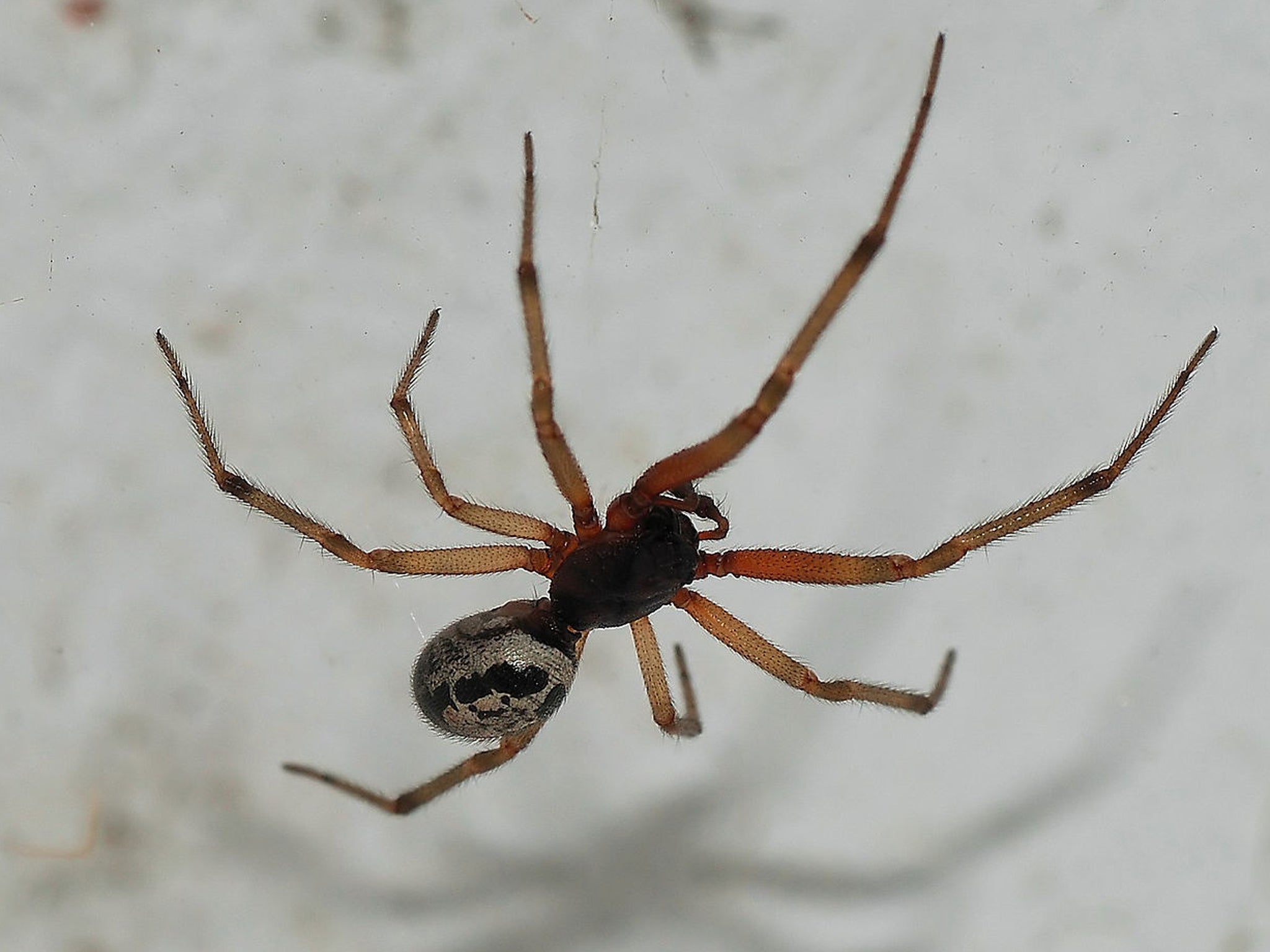Bites reported across London and Kent as south east sees influx of Britain's most poisonous spider
Rising temperatures are forcing false widow spiders up north

Your support helps us to tell the story
From reproductive rights to climate change to Big Tech, The Independent is on the ground when the story is developing. Whether it's investigating the financials of Elon Musk's pro-Trump PAC or producing our latest documentary, 'The A Word', which shines a light on the American women fighting for reproductive rights, we know how important it is to parse out the facts from the messaging.
At such a critical moment in US history, we need reporters on the ground. Your donation allows us to keep sending journalists to speak to both sides of the story.
The Independent is trusted by Americans across the entire political spectrum. And unlike many other quality news outlets, we choose not to lock Americans out of our reporting and analysis with paywalls. We believe quality journalism should be available to everyone, paid for by those who can afford it.
Your support makes all the difference.A man has been bitten in his sleep by Britain’s most poisonous spider as hordes of the arachnid are reported to have invaded parts of London and Kent due to climate change.
Alex Michael, 36, a tattoo artist from Sidcup in London told News Shopper how his hand turned yellow and black after being attacked by a false widow spider, also called steatoda nobilis.
His hand remained swollen “like a balloon” for five weeks until doctors gave him a course of antibiotics.
Dubbed the “British black widow”, the deadly spider, which is about the size of a 50 pence piece, unleashes venom and can kill those who are allergic to it. However, it will only attack if provoked.
The false widow spider has also been sighted in Orpington and in Greenwich, where one victim was 29-year-old glazier Paul Lakeman, who felt something on his shoulder as he lay down to sleep.
Further reading: False widow spider now spotted in Essex
“I was in bed with the light off,” Mr Lakeman told News Shopper.
“I have quite a lot of hair and it normally brushes on my shoulder and being a hot night I had the fan on. To begin with I thought it was my hair so instinctively I threw it off onto the floor.
“I heard the spider hit the floor and I looked at it - it looked like it meant business.”
Decorator Andy Pitty from Greenhithe near Dartford in Kent says he has counted 50 of the spiders across three fences at his home.
The 43-year-old told News Shopper: “An expert at the British Arachnological Society said he was surprised they were in the garden and not in the house so I’m just worried about them coming in for warmth.
“I had seen a couple of babies so knew they had young. I went out with my torch one night and the fence was coming to life.”
He added: “I caught one and I’m sure it was a male. I put it in (a glass) with one of the baby spiders and it just killed it within seconds.”
The false widow spider first came to the UK over 100 years ago in crates of fruit from the Canary Islands. It has been established in Devon for a long time but recently climate change has caused the population to spread across the south east.
The spider is likely to spread northwards in years to come, according to the Natural History Museum’s Insect Information Service (IIS).
The IIS hears of about 10 cases of spider bites each year, although no one in the UK has ever died as a result of one.
In 2006 a Dorchester man was hospitalised for three days after suffering a heart seizure following a spider bite believed to have been caused by a false widow.
Tony Wileman, a conservation ecologist at the London Wildlife Trust, said: "The severity of symptoms of false widow spider bites depends on how much venom has been injected and reports from false widow spider bites have included symptoms like chest pains and a swelling and tingling of the bite area.
"It is recommended that if bitten by a spider thought to be a false widow spider then medical attention (a visit to the A&E department or your local GP) should be sought informing the medical staff that you think you have been bitten by a false widow spider. Do not ring 999.
"Nearly all spider bites come from attempting to catch the spider so it is highly recommended that this is not undertaken. However, If you must remove the spider from your home, please capture it using a jar and a stick or pencil and try not to touch the spider with your hands."
Join our commenting forum
Join thought-provoking conversations, follow other Independent readers and see their replies
Comments